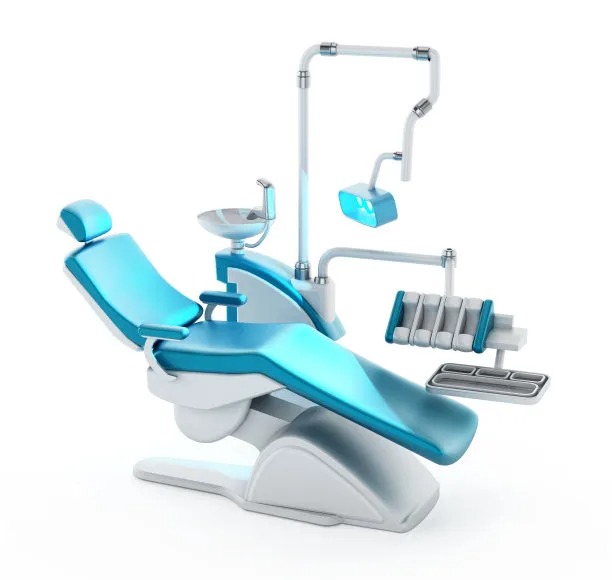Summary: Periodontal disease, a chronic inflammatory condition affecting the gums and supporting structures of teeth, has far-reaching effects on overall health beyond dental concerns. It is linked to various systemic diseases, emphasizing the interconnected nature of oral and general health. This article explores the impact of periodontal disease on the body, the symptoms that can serve as warnings, effective prevention strategies for better oral care, and the critical role of professional dental advice. By understanding these aspects, individuals can take proactive steps to maintain their oral health and, consequently, their overall well-being.
1. The Link Between Periodontal Disease and Overall Health

Periodontal disease primarily affects the gums and bones that support teeth, but its consequences extend far beyond the mouth. Research has established a connection between periodontal disease and various systemic conditions, including cardiovascular diseases, diabetes, and respiratory infections. The inflammation caused by periodontal bacteria can enter the bloodstream, leading to systemic inflammation and exacerbating these conditions.
Individuals with diabetes, for example, are more susceptible to periodontal disease due to impaired blood flow and reduced healing characteristics. Conversely, those suffering from periodontal disease may find blood sugar levels harder to control. This bidirectional relationship highlights the importance of maintaining oral health to manage diabetes effectively.
Moreover, studies indicate that periodontal disease may influence cardiovascular health by contributing to artery inflammation and endothelial dysfunction. The shared risk factors, such as smoking and poor diet, further complicate this relationship, necessitating comprehensive healthcare strategies that address both oral and systemic health.
2. Warning Signs of Periodontal Disease
Recognizing the early signs of periodontal disease is crucial for effective management and prevention. Common symptoms include swollen and bleeding gums, persistent bad breath, and loose teeth. These indicators often serve as a warning system, signaling that one’s oral health may be at risk and requiring immediate attention.
Additionally, the presence of pus between the gums and teeth or receding gums can be alarming signs that merit professional evaluation. The progressive nature of periodontal disease means that early intervention is key to preventing further damage and complications.
Individuals should also be aware that some symptoms may not be overtly noticeable until the disease has advanced. Routine dental check-ups play a vital role in detecting risky changes early, underscoring the importance of regular professional examinations for maintaining both oral and overall health.
3. Effective Strategies for Prevention
Preventing periodontal disease largely revolves around maintaining good oral hygiene practices. Brushing teeth at least twice a day with fluoride toothpaste and thorough flossing daily can significantly reduce the risk of developing gum disease. These habits help remove plaque, the primary cause of periodontal disease, before it hardens into tartar.
In addition to daily hygiene, regular dental check-ups and cleanings—at least twice a year—are essential. Professional cleanings can remove tartar that regular brushing may miss, and dental professionals can provide personalized advice based on individual needs.
Furthermore, lifestyle choices contribute significantly to oral health. Avoiding tobacco products, moderating alcohol consumption, and maintaining a balanced diet rich in vitamins can bolster the immune system and enhance resistance to periodontal disease, supporting overall health.
4. The Role of Professional Dental Advice
Consulting with dental professionals is vital for effective prevention and management of periodontal disease. Dentists can offer tailored advice, recommending specific oral care routines and products that cater to individual risks and conditions. They can also provide insights into the relationship between periodontal health and systemic conditions.
Moreover, regular evaluations by a dentist not only assist in early detection but also enable the development of customized treatment plans for those diagnosed with periodontal disease. Advanced imaging and diagnostic tools can assist in monitoring the health of the gums and surrounding tissues effectively.
Ultimately, ongoing communication between patients and their dental practitioners fosters a collaborative approach to achieving optimal oral health and understanding the broader impact on overall well-being.
Summary: The exploration of periodontal disease reveals its substantial impact on both oral and overall health, emphasizing the need for awareness and proactive care. By recognizing the symptoms, implementing effective prevention strategies, and seeking professional guidance, individuals can improve their health outcomes significantly. This comprehensive understanding strengthens the connection between oral hygiene and general health, ultimately leading to healthier lives.
This article is compiled by Vickong Dental and the content is for reference only.
Vickong Dental
Vickong Dental is a large medical group established in Hong Kong in 2008 by professors from well-known medical universities in Guangdong and Hong Kong, as well as medical doctors from key national '985' universities (including Master's supervisors and senior professors). The chain of branches brings together expert dentists with PhDs and Master's degrees from Hong Kong and Mainland China, committed to providing high-quality dental treatment.
"Vickong Dental Practices the University Motto of 'Healing and Serving Society,' with a Stable Operation for Sixteen Years. It Has Been honored with Hong Kong Enterprise Leaders's Choice,' and is a Global Trusted Implant Center for the Nobel Implant System. Recommended by Hong Kong Metro Broadcast and Guangdong Television, it Serves Customers from Over Thirty Countries and Regions, Gaining the Trust and Favor of Citizens from the Guangdong-Hong Kong-Macau Greater Bay Area and Surrounding Cities.

Thousands of customers' unanimous praise
The most recognized and highly recommended dental service by customers in the Guangdong-Hong Kong-Macau Greater Bay Area
We Ensure You Receive Detailed Care and Attention Here
Hong Kong standards, Shenzhen prices, Your Trusted English-speaking dentists

Vickong Dental Medical-Grade Instrument Disinfection Process
Vickong Dental Medical-Grade Instrument Disinfection Process

Vickong Dental Chain: A Warm and Comfortable Environment for Treatment






Appointment Hours

Q&A
Why choose Vickong Dental?
Vickong Dental practices the university motto 「Medicine to Benefit Society」, with each branch bringing together highly qualified dentists with doctoral and master’s degrees from Hong Kong and the Mainland, and has maintained seventeen years of steady operation。Recipient of 「2024 Hong Kong Enterprise Leaders Brand」, 「2025 Hong Kong Enterprise Leaders Brand」, a Nobel Biocare Global Trusted Implant Center, and a brand recommended by Metro Radio Hong Kong and Guangdong TV。
To date, we have served customers from more than thirty countries and regions,earning exceptionally high word-of-mouth recognition and trusted recommendations from residents across the Guangdong-Hong Kong-Macao Greater Bay Area and surrounding cities
We have eight major branches in Zhuhai、Shenzhen,and a consultation and service assurance center in Hong Kong,so you can book a free consultation at any time for any questions,which is very reassuring.
If I do not accept the quotation after the CT scan, will I be charged??
No! As long as the actual treatment has not started, you will not be charged any fees.
Will there be any additional charges during the treatment process?
No, there won’t be any additional charges. Before treatment begins, we will clearly explain the treatment plan and its corresponding fees. Only after the patient agrees and signs the consent form will we proceed with the dental service.
Can I pay in Hong Kong dollars?
Yes. Vickong Dental accepts payment in Hong Kong dollars. The amount will be converted based on the exchange rate of the day, and the applicable rate will be clearly communicated to you in advance.
Can I reschedule my appointment at any time?
Yes. Please contact us via **WeChat** or **WhatsApp** as early as possible, providing your original appointment time and details, along with your preferred new date and time slot for rescheduling.













